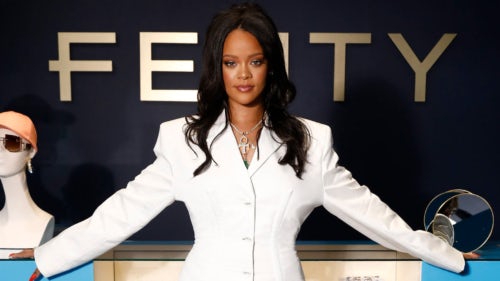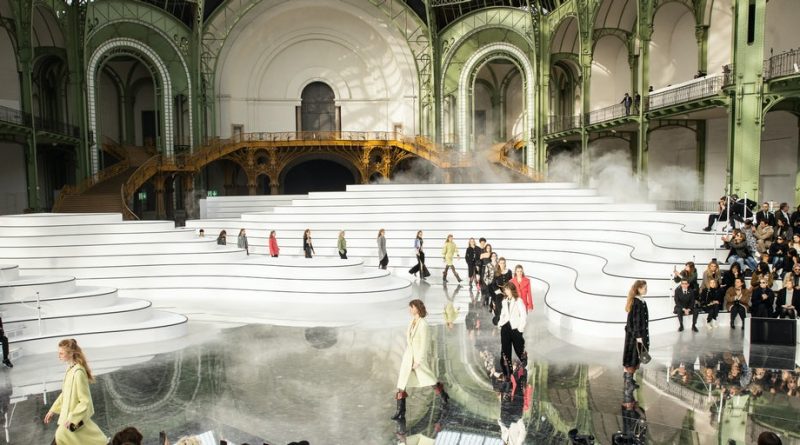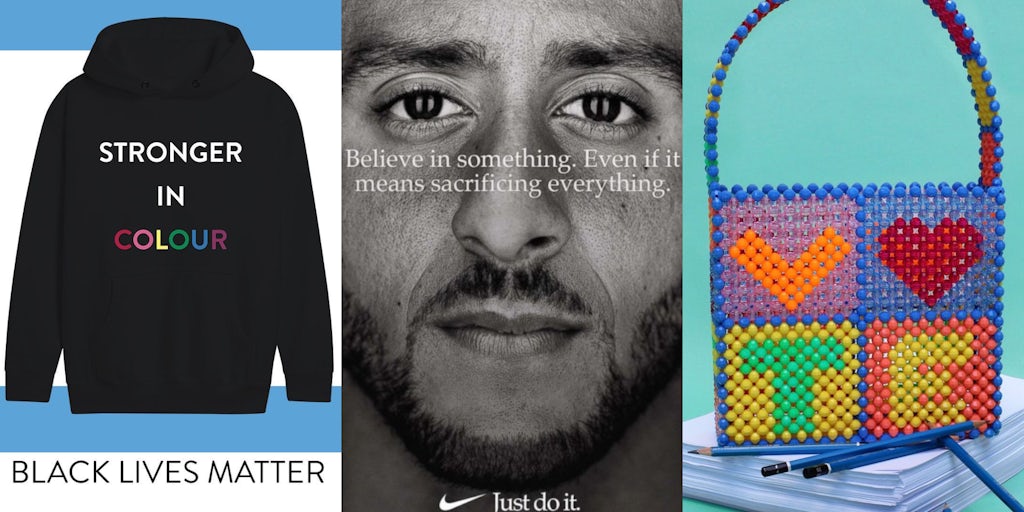What Happened to Rethinking the Fashion System? | BoF Professional, This Week in Fashion
What happened to rethinking the fashion system? In the early days of Europe’s Covid-19 outbreak, fashion’s long-simmering debate on rebooting its traditional approach to showing, delivering and discounting collections began to heat up. But interest in the issue has waned.
Back in April, Saint Laurent was the first to make a move, announcing its intention to skip Paris Fashion Week and reshape its schedule for showing collections for the rest of the year in a break with the conventional fashion calendar. Soon after, Kering stablemate Gucci threw its weight behind change, announcing that it was going seasonless and scaling back the rhythm of its fashion shows to twice per year. “I will abandon the worn-out ritual of seasonalities and shows to regain a new cadence, closer to my expressive call,” said designer Alessandro Michele.
Around the same time, a group of designers and retailers fronted by Dries Van Noten published an open letter calling for changes to the timing of deliveries and discounts. Almost simultaneously, another group, facilitated by BoF, issued a proposal for “rewiring” the fashion calendar more extensively, including the timing of buying periods and shows.
But some of the industry’s largest brands, with more traditional mindsets and significant vested interests in the status quo, have since thrown cold water on the idea of a system-wide reboot. Chanel’s president of fashion activities Bruno Pavlovsky has made clear he has little interest in changing a fashion system that is working so well for the French luxury giant, which surpassed $12 billion in sales in 2019 and plans to double down on its traditional six shows per year.
Dior and Fendi have also signalled their plans to stage shows on the traditional calendar this autumn. Owner LVMH is likely to announce shows for more of its megabrands and seems uninterested in upending the industry’s current system. (The councils that organise Paris and Milan fashion weeks have their own vested interests in the status quo and are somewhat resistant to change, too).
To be sure, rethinking the inefficiencies of the traditional system is most urgent for smaller brands, which are currently under pressure like never before due to their heavy reliance on third-party retailers and lack of financial cushion to absorb shocks brought on by the pandemic. But fashion’s current approach to showing, delivering and discounting collections is fundamentally out of sync with today’s globalised, digital world and ultimately destroys value for the entire industry, megabrands included.
Some of the industry’s largest brands have thrown cold water on the idea of a system-wide reboot.
Traditional runway shows are incredibly powerful in the way they harness the physical presence of the “right” people — editors, celebrities, influencers and other tastemakers — to get fashion’s dream machine whirring, turning dresses into objects of desire for millions of consumers. But the months-long gap between these marketing spectacles, consumed online in real-time, and when collections hit stores has long been a problem for brands of all sizes.
What’s more, these collection deliveries follow archaic, Eurocentric “seasons” that have been warped by the demands of major department stores for so long that they no longer correspond with real-world weather patterns even for European shoppers, let alone fashion’s increasingly global customer base, whose clear desire to “buy now, wear now” is perennially thwarted.
Then, there’s the matter of discounting. Ever-earlier seasonal markdowns — exacerbated by the internet, where competitors are just a click away and price comparison is common — may help to drive short-term sales bumps. Ditto broad-spectrum, mid-season sales events like Black Friday, Cyber Monday and Singles Day. But in the long run, the entrenched practice of offering discounts without discipline erodes profitability and brand equity for brands large and small.
A rethink would offer value across the sector.
The initiatives seen thus far lack industry-wide consensus. In any case, we may not be moving from a past world of “model A” to a future world of “model B” where all players take a one-size-fits-all approach to shows, deliveries and discounting. In fact, we’re more likely to see the emergence of models A-to-Z, with labels doing what’s best for their own businesses.
Yet, the industry calendar does require a degree of coordination to function, across activities from department store deliveries to fashion weeks. And small brands with the most incentive to update their approach will find it difficult to press ahead unless the big players come on board.
Change clearly won’t happen overnight. While coronavirus has proven a catalyst for the conversation on systemic change, it has also created huge uncertainty that may simultaneously create obstacles to reform.
The fashion cycle that starts in September is likely to be highly unusual, with uncertainly set to continue well into 2021, as companies brace for the possibility of a second (or third) wave of infections. With so much up in the air, it may take 12 to 24 months for things to settle and the system to evolve.
But if it is going to keep pace with a globalised, digital world, evolve it must. Big brands with vested interests in the status quo should not stand in the way of change, as ultimately rethinking fashion’s traditional system is good for them, too.
THE NEWS IN BRIEF
FASHION, BUSINESS AND THE ECONOMY

Kendall Jenner for Burberry | Source: Instagram @kendalljenner
Burberry’s revenue drops 20 percent for June. The results indicate a rebound from the 49 percent sales decline reported for the company’s first quarter, but Burberry shares still fell by 8 percent when markets opened Thursday morning, wiping half a billion pounds from its market value. The news comes as the company lays off 500 workers as it struggles to offset the economic downturn.
Richemont’s first-quarter sales slump as Covid-19 hits jewellery demand. The Cartier-owner’s sales fell 47 percent to €1.99 billion ($2.27 billion), a similar decline to that posted by rival Swatch Group earlier this week. Richemont said it had seen “unprecedented levels of disruption” due to the pandemic, adding that sales had slowed in all regions. Asia-Pacific was, however, performing better due to a 49 percent sales increase in China.
PVH to cut 450 corporate roles and close more than 160 stores. The company, which owns Calvin Klein and Tommy Hilfiger, will reduce its workforce by 12 percent, saving about $80 million per year. The new measures are in response to the “structural changes occurring in the North American retail landscape” as a result of the coronavirus, said PVH Chairman and Chief Executive Manny Chirico in a statement. Tommy Hilfiger and Calvin Klein stores will not be affected.
Hood By Air is making a comeback. Shayne Oliver’s creative collective has announced its much anticipated return after a three-year hiatus. The collective will exist in multiple formats, selling new products direct to consumer, hosting events and debuting an archive of Hood By Air’s original collections which were precursors to the luxury streetwear movement that has captivated fashion.
Ferragamo raises prices by up to 7 percent to weather pandemic. Sales fell by nearly a third in the first three months of 2020 as the coronavirus crisis undermined efforts for a wider transformation at the Italian leather goods maker, which last year posted growth for the first time since 2015. Ferragamo joins a host of other luxury labels — including Chanel and Louis Vuitton — raising prices in a bid to offset the financial impact of the crisis.
J.C. Penney to cut 1,000 jobs and close 152 stores. The layoffs will also impact corporate-level employees as the company looks to emerge from Chapter 11 bankruptcy protection. Field management and international roles will also be affected by redundancies, with eligible departing employees liable for severance packages. J.C. Penney is also negotiating details with landlords as it turns its attention t0 store closures.
London Fashion Week will go on. The British Fashion Council has confirmed plans for shows this autumn, but things won’t be business as usual. The event, which will take place from September 17 to 22, will combine physical and digital shows, featuring both womenswear and menswear. The industry is still grappling with how to make fashion weeks work amidst Covid-19. London’s all-digital fashion week in June saw social media engagement down 55 percent compared to January’s traditional showcase, according to Launchmetrics.
US targets French luxury in tariff retaliation. The move comes after President Emmanuel Macron’s government said it would tax Silicon Valley’s tech giants. French imports worth $1.3 billion will be liable for an additional 25 percent tax if both nations fail to agree on a deal. The list of taxable imports includes makeup and beauty products as well as handbags made out of reptile leather, implicating French houses and conglomerates like LVMH, Kering, Hermès International and L’Oréal.
Dov Charney’s Los Angeles Apparel factory closes after Covid-19 spread. The news comes after officials discovered that 300 factory workers caught coronavirus. Four Los Angeles Apparel factory employees have died of the virus, which triggered an investigation into the factory by the Los Angeles County Department of Public Health. The health department reportedly discovered “flagrant violations” of health protocols during a visit in late June after employees reported the spread.
THE BUSINESS OF BEAUTY

Rihanna hosts the Fenty Launch on May 22, 2019 in Paris | Source: Getty Images
Fenty is launching a skincare line. “Fenty Skin,” which was trademarked in March last year, is set to launch on July 31. While the trademark covers skincare and body care products, individual categories have not yet been named. The five enigmatic products named are: “Buff Ryder,” “Instant Reset,” “Fat Water,” “Flash Nap,” and “Hydra Vizor.”
Patrick Starrr debuts standalone cosmetics line. The influencer has announced his first solo venture in the beauty world with makeup line One/Size, which will be stocked exclusively at Sephora. Starrr, who has previously worked with M.A.C. Cosmetics and Uoma Beauty, said the makeup line will celebrate LGBTQIA+ inclusivity.
PEOPLE
Charlotte Werner named CEO of Giambattista Valli. Werner, the former manager of women’s leather goods collections at Louis Vuitton, will oversee the next growth phase of the Paris-based luxury house with immediate effect. President Sandrine Valverde, who has been responsible for sales, production and distribution since its launch, will remain an adviser.
Christopher Bugg appointed Prada’s new group communications director. Bugg, who joined the company from Louis Vuitton in January 2020 as marketing and communications director for Asia, will be responsible for Prada’s communications strategy across brands. Reporting to Lorenzo Bertelli, Prada Group’s head of marketing, Bugg will play a central role in leading the company’s digital communications efforts.
1017 Alyx 9SM Co-Founder Jennifer Murray joins 032c. Murray, who previously served as sales director of Alyx and Hood By Air, will take on the role of sales and digital strategy lead at the Berlin-based magazine-turned-brand, overseeing sales of 032c’s ready-to-wear and accessories, effective immediately.
MEDIA AND TECHNOLOGY
Asos sees sales rise 10 percent in lockdown period. The fast fashion retailer’s sales reached £1.01 billion in the four months to June 30, up from £919.8 million in the same period last year. Asos, which is doubling down on warehouse space, reported an overall improvement in global demand, which jumped by 17 percent while the UK market declined by 1 percent. Despite a 16 percent net increase in its active customer base, Asos said it remains cautious in its medium-term outlook due to social and economic uncertainty caused by the coronavirus pandemic.
Zalando sees a jump in demand. Europe’s largest e-tailer estimates earnings could reach a record €300 million ($341 million) this year due to a lockdown-induced surge in online shopping. Zalando’s shares increased 5 percent, raising the company’s market value to about €17 billion. Contributing to Zalando’s stellar forecasts is the addition of 180 new manufacturers to its partner programme as more brands look to join e-commerce channels with a wide reach.
Walmart leads $1.2 billion investment in India’s Flipkart. The Indian e-commerce platform has been squeezed by the coronavirus crisis and by rival platforms like Amazon and JioMart. Flipkart was forced to temporarily suspend services in India due to strict national lockdown measures that banned non-essential deliveries. Walmart acquired 80 percent of Flipkart in 2018 in an attempt to take on Amazon in one of the world’s fastest growing e-commerce markets.
E-commerce faces lofty hopes after pandemic-fuelled demand. Stocks in many e-commerce companies have doubled or even tripled since brick-and-mortar shops were forced to close, with eBay shares up 120 percent since March, Shopify up by 195 percent and Amazon up by 80 percent. However, experts are sceptical about whether the companies can deliver the outstanding results and sales growth to match the optimistic forecasts that have come off the back of lockdown success.
Compiled by Daphne Milner.
BoF Professional is your competitive advantage in a fast-changing fashion industry. Missed some BoF Professional exclusive features? Click here to browse the



